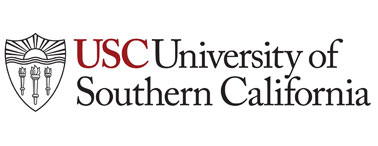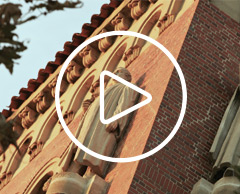Loan Repayment
Your student loan is real money. You have to pay it back, so borrow wisely.
When you accept a loan, you accept legal and financial responsibilities that last until the loan is repaid. Loans must be repaid with interest, which begins to accrue when you:
Receive your initial loan disbursement; or
Cease to be enrolled in school at least half-time.
Establish good credit by repaying your student loan. Paying your student loan on time affords you the chance to build a solid credit history that will help define the course of your life. On the other hand, defaulting on your loan can have serious, long-term consequences.
Responsibilities and Rights
When you accept a student loan, you agree to:
Repay your loan, including accrued interest and fees, whether or not you complete your education, complete the program within the regular time frame, obtain employment or are satisfied with your education;
Attend exit counseling before you leave school or drop below half-time enrollment;
Notify the current holder of your loan within 10 days if you change your name, address or phone number, drop below half-time status, withdraw from school or transfer or change your graduation date;
Direct all correspondence to the current holder or servicer of your loan;
Make monthly payments on your loan after leaving school, unless you are granted a deferment or forbearance; and
Notify the current holder of your loan of anything that might affect your eligibility for an existing deferment.
As a student borrower, you have the right to:
Receive a copy of your promissory note either before or at the time the loan is made;
Receive a disclosure statement before repayment on your loan begins, including information about interest rates, fees, loan balance and the size and number of payments;
A grace period after you leave school or drop below half-time enrollment and before your loan payments begins (if applicable);
Prepay all or part of your loans without a prepayment penalty;
Consolidate your loans, if applicable;
Apply for loan forgiveness, if eligible;
Receive written notice if your loan is sold to a new holder;
Apply for deferment of your loan payments for certain specified periods, as long as you're eligible;
Request forbearance from the holder of your loan if you are unable to make payments and do not qualify for deferment (you must qualify according to the loan holder's requirements);
Loan cancellation under certain circumstances; and
Receive proof when your loan is paid in full.
Although every effort is made to provide the most accurate and up-to-date information, this content is subject to change due to alterations in federal, state, university or lender policy or procedure. The USC Financial Aid Office cannot be held liable for the consequences of such changes in policy or procedure. The most current information can be found by contacting your lender or servicer.
Medical, Law, Dental and Pharmacy Students
For more information on loan options for professional students, visit:
Keck School of Medicine of USC
Exit Loan Counseling
Student loan borrowers are required to complete Exit Loan Counseling the semester they plan to graduate, as well as any time they take a leave of absence or drop to less than half-time status.
Direct Loan and Graduate PLUS Loan Borrowers
Online Exit Counseling
Students are required to complete exit loan counseling online. Please visit studentaid.gov, sign in to Manage My Direct Loan and click on the Complete Counseling option. You will need to provide updated contact information, information on next of kin and two separate personal references. The exit counseling session should take about 30 minutes to complete. USC will be notified electronically when you complete the process.
In-Person Exit Counseling
Students are also required to attend an in-person exit loan counseling session on campus. These sessions will cover important information about repayment and deferment procedures, as well as offer valuable advice about managing your finances after graduation.
Session Dates: Appointments are not required, but please be on time as late arrivals will not be admitted and seating is limited. Sessions last about one hour.
Benefits to attending in-person exit counseling:
Receive IMMEDIATE in-person answers and guidance.
Learn more about how to manage your money and your loans.
Become more knowledgeable about your repayment responsibilities and how to prevent default. (For example, loans cannot be forgiven or cancelled in a bankruptcy.)
Health Professions Student Loans, Loans for Disadvantaged Students or Institutional Loan Borrowers
Students are required to complete an additional exit interview online. Please visit the Student Financial Services web page for more information. A Loan Hold will be placed on your account until the exit interview has been completed. Exit counseling information for HPSL/LDS loans will be available online through loan servicer ECSI.
Questions?
For additional information about:
HPSL, LDS and institutional loans, contact the USC Student Financial Services Office at (213) 740-4077 or visit usc.edu/sfs. Federal Direct (Stafford) or Graduate PLUS loans, contact your lender or visit studentaid.gov.
Other (Private) Loan Programs
If you have borrowed from one or more of the non-federal, private financing programs, more information about those loans can be obtained from your lender or on your credit report at annualcreditreport.com.
Repayment Plans
Your loan is real money with real consequences.
Several options are available for repayment of your student loan, allowing you to choose the one that best meets your financial needs. You are allowed to change Repayment Plans at least once a year. More information regarding the Repayment Plans can be found on the Federal Student Aid website.
To compare plans you may be eligible for and view estimates for how much you would pay monthly or over the life of the loan, please visit the Student Loans website.
To learn more about managing your finances, please visit iGrad, a free online platform that empowers students and their families to make sound financial decisions, now and in the future. Sign up for an account at usc.igrad.com.
Loan Default
On-time repayment of your student loan is critical. It is also a great way to develop a good credit history, which follows you throughout your lifetime.
Delinquent payments are reported to a national credit agency and will damage your credit report and your future ability to borrow.
Your lender or guarantor can provide you with options if you are having difficulty making payments.
For more information regarding loan default and reestablishing financial aid eligibility please visit the Student Aid website.
Consequences of Default
Suspension of university services.
Loss of eligibility for any additional federal, state and university financial aid.
Loss of the option to make monthly payments the full amount of your loan becomes immediately due and payable.
Adverse credit history.
Tax-offset and wage garnishment.
Loan acceleration.
Write-off or collection agency action, which can lead to an increased loan payoff amount.
Late fees and collection costs.
Litigation, which can lead to an increased loan payoff amount.
Suspension of professional licenses.
Increased payment amounts.
Loss of deferment and forbearance options.
Preventing Defaults
Be proactive! It is crucial that you contact your lender immediately if you are having difficulty making payments.

